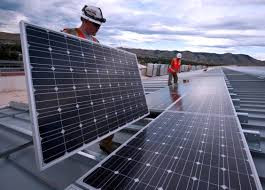As reported by the German solar industry magazine, PV Magazine, executives from Chinese solar companies were taken into custody for investigation on June 12 while attending the 2023 Intersolar Europe exhibition in Munich, Germany. According to insiders, the companies in question reportedly include China National Building Materials Group Corporation, Runda Solar, and GCL-Poly. Domestic major component companies appear to be uninvolved in this incident, and the exhibition's proceedings remain unaffected.
While the reasons for the investigation are yet to be revealed, industry analysts suggest a possible connection to a previous European Union anti-dumping and countervailing investigation against Chinese solar products. However, the Vice Chair of the Silica Association's Expert Committee, Lu Jinbiao, clarified that these investigations initially involved a five-year price commitment that was later rescinded. In the past, some corporate executives were detained on suspicion of fabricating documents to evade price commitments.
According to Lu, the 2012 EU anti-dumping ruling against China's solar industry necessitated price commitments that prohibited exporting to the EU at lower than agreed prices. This measure was rescinded upon its five-year review. It is estimated that this recent incident will not impact the export of Chinese photovoltaic products to the EU.
The companies suspected of involvement, including Runda Solar and China National Building Materials, are manufacturers of photovoltaic components. Runda Solar, listed on China's New Third Board, specializes in the research, production, and sales of solar photovoltaic components. Their 2022 financial report reveals that the company primarily exports to the EU and Japan. The top five customers accounted for 54.98% of total sales.
The investigation came to light two days before the exhibition's official start, and according to informed sources, the investigation is still ongoing. PV Magazine reported that the European solar manufacturing association EU Prosun has claimed in the past that evading minimum import prices, anti-dumping, and countervailing duties harms European taxpayers.
Industry analysts speculate this event could be related to anti-dumping and anti-subsidy investigations. In 2012, the EU initiated investigations into China's solar products. From 2013, China's exports to Europe were subjected to high tariffs. This policy ended in September 2018.
Following the conclusion of the investigations, the European market rapidly warmed up, becoming China's largest export region for components. According to InfoLink Consulting data, Europe imported 86.6 GW of photovoltaic components from China in 2022, accounting for 56% of China's annual component exports, growing by more than 100%.
However, the repercussions of the anti-dumping investigations linger. During the Munich exhibition in 2019, several Chinese solar industry executives were taken into custody by German authorities. One of the reasons for the arrest was allegedly related to commercial smuggling of solar components and unlawful evasion of the EU's minimum import price before September 2018.
However, some insiders shared that the reasons for the executives' investigation are currently unclear, and may also include possible issues such as forging the origin or patent disputes. Another issue could be related to the fact that some companies were not on the list during the anti-dumping investigation (as they had no export records during the investigation) and needed to apply to join the regulatory roster. If exports were made under the guise of companies on the list, that would also be non-compliant.
Lu Jinbiao asserted that China and the EU haven't had trade barriers in the solar industry in recent years, including the unrestricted import of polycrystalline silicon from Germany to China. In terms of exports, major companies, especially leading listed companies, are very standard and experienced in international trade. If the issue turns out to be a remnant from the past, it will not impact the export of Chinese photovoltaic products to the EU.





